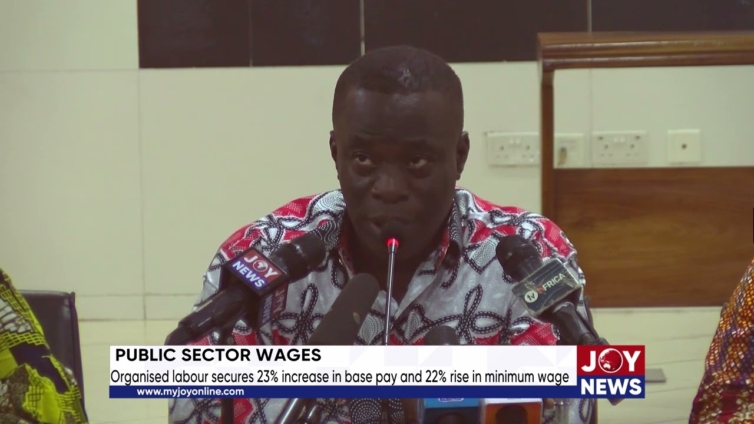The issue of public sector wages in Ghana has become one of the most unintelligent conversations in our national discourse. Public sector wages consume a colossal 45% of our total national revenue, but what do we get in return for this lion’s share? We end up with a tiny $77 billion economy reminiscent of the 15th century, with a pitiful 14% tax component.
Our public sector delivers very little for the huge chunk of revenue they consume, and no one demands any return on this investment. We never have meaningful discussions about public sector productivity and resourcefulness. Are we content paying workers at the Grains and Legumes Development Board, Parks and Gardens, or Irrigation Development Authority for doing virtually nothing?
Who are we deceiving?
Someone should tell the Employment Ministry that their responsibilities extend beyond annual salary negotiations. Productivity must take centre stage in their daily affairs.
Why does Organised Labour in Ghana demonstrate and strike against many issues but never against the lack of productivity, which is the main factor impeding higher wages among other factors? This question is vital for our national development and economic growth. If we are serious about transforming our economy and improving our living standards, we need to address the elephant in the room: public sector productivity.
The current state of affairs is unsustainable. We cannot continue to allocate almost half of our national revenue to a sector that does not deliver commensurate value. It is time for a paradigm shift. We need to move away from the entrenched culture of entitlement and towards a culture of accountability and performance. Public sector employees must be held to the same standards of productivity and efficiency as their counterparts in the private sector.
The Employment Ministry must take the lead in this transformation. It must go beyond merely negotiating salaries and ensure that public sector workers contribute meaningfully to national development. This involves setting clear performance targets, monitoring outcomes, and implementing consequences for underperformance. It also requires a change in mindset from both employees and employers, recognising that public service is not a right but a responsibility.
Moreover, Organised Labour must play a constructive role in this transformation. Instead of focusing solely on wage increases, labour unions should advocate for measures that enhance productivity. This includes training and development programmes, better working conditions, and the adoption of modern management practices. By doing so, they will not only improve the welfare of their members but also contribute to national prosperity.
In conclusion, the conversation about public sector wages in Ghana needs to evolve. It is not enough to talk about how much we pay; we must also demand value for money. The focus must shift from entitlement to productivity, from consumption to contribution. Only then can we build a robust and dynamic economy that meets the aspirations of all Ghanaians. The time for change is now. Let us stop deceiving ourselves and start demanding more from our public sector.
Latest Stories
-
US Olympic & Paralympic Committee bars transgender women from competing in women’s sports
3 minutes -
Demolition of Buildings in Waterways: Who is to blame?
8 minutes -
Interior Minister condemns killing of Kusasi chief, assures swift justice
8 minutes -
GTBank strengthens CSR with Autism Awareness Initiative
17 minutes -
Catholic Bishops call for rule of law over recent electoral violence and CJ suspension
25 minutes -
Over 350k ounces of gold sold to BoG in 2024 under domestic gold purchase programme – Chamber of Mines
38 minutes -
Mahama refers electoral violence report to Attorney-General for legal action
47 minutes -
Body of Ghanaian teen who died under suspicious circumstances in Latvia returned home
53 minutes -
The Self-Defeating spiral of regulatory technology?
1 hour -
Police launch investigation into fatal shooting of Kusasi Chief in Asawase
1 hour -
WAFCON 2024: ‘This one really hurt’– Jennifer Cudjoe reacts to semifinal loss
1 hour -
Former Black Queens coach Nora Häuptle was overhyped – Former GFA EXCO Member
1 hour -
WAFCON 2024: ‘Build on this and you’ll be champions’ – Kurt tells Black Queens
2 hours -
Kelvin Taylor deserved fair hearing before arrest warrant – UGBS Lecturer
2 hours -
NRSA orders immediate removal of billboards in road medians over safety concerns
2 hours

